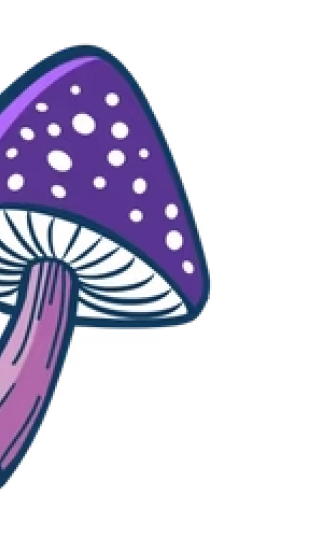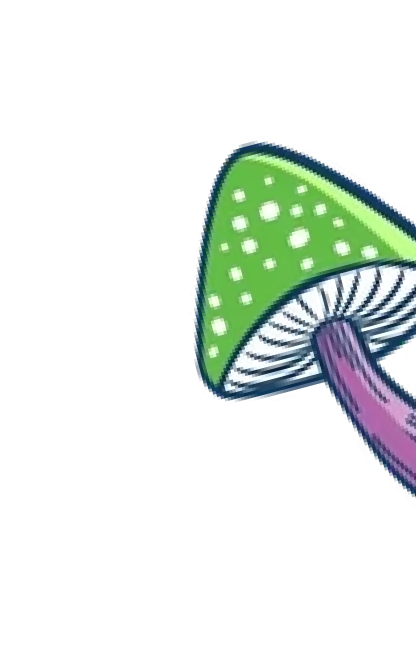In recent years, the reishi mushroom has gained significant attention for its potential health benefits. One particular question that has intrigued both researchers and enthusiasts alike is whether the reishi mushroom possesses psychedelic properties. This article aims to delve into the subject, separate fact from fiction, and provide a comprehensive understanding of the reishi mushroom and its relation to psychedelia.
Understanding the Reishi Mushroom
The reishi mushroom, scientifically known as Ganoderma lucidum, holds a rich history and a prominent position in both traditional and modern medicine. Its origin can be traced back to ancient China, where it was highly revered for its medicinal properties. Traditionally, the reishi mushroom was used to promote longevity, enhance vitality, and strengthen the immune system.
The History and Origin of Reishi Mushroom
The reishi mushroom has been an integral part of traditional Eastern medicine for over 2,000 years. Its use can be traced back to ancient texts like the Compendium of Materia Medica, where it was commonly referred to as the "mushroom of immortality." In ancient China, the reishi mushroom was exclusively reserved for royalty due to its scarcity and revered health benefits.
Legend has it that the reishi mushroom was discovered by Emperor Shennong, who was known as the "Divine Farmer" and is considered the father of Chinese herbal medicine. According to the story, Emperor Shennong tasted hundreds of herbs and plants to determine their medicinal properties. When he consumed the reishi mushroom, he experienced a profound sense of calmness and clarity, leading him to believe that it possessed extraordinary healing powers.
Throughout history, the reishi mushroom also found its way into other cultures such as Japan and Korea, where it was regarded as a symbol of good luck, longevity, and spiritual enlightenment. In Japan, it is often referred to as "mannentake," which translates to "10,000-year mushroom," emphasizing its association with longevity and vitality.
The Biological Composition of Reishi Mushroom
Scientific analysis has revealed that the reishi mushroom is comprised of several bioactive compounds, including triterpenoids, polysaccharides, and sterols. These compounds are believed to be responsible for its potential health-promoting effects. However, it is important to note that the specific composition of reishi mushrooms can vary depending on factors such as cultivation methods and species.
One of the key bioactive compounds found in reishi mushrooms is triterpenoids. These compounds have been extensively studied for their anti-inflammatory and antioxidant properties. They are believed to play a crucial role in supporting the immune system and reducing the risk of chronic diseases.
Polysaccharides are another important component of reishi mushrooms. These complex carbohydrates have been shown to have immunomodulatory effects, meaning they can help regulate and enhance the immune response. They are also believed to have potential anti-tumor properties, making reishi mushrooms a subject of interest in cancer research.
Additionally, reishi mushrooms contain sterols, which are natural compounds that resemble cholesterol in structure. These sterols have been found to have cholesterol-lowering effects and may contribute to the cardiovascular benefits associated with reishi mushroom consumption.
The Psychedelic World: A Brief Overview
Before exploring the alleged psychedelic properties of the reishi mushroom, it is essential to have a comprehensive understanding of psychedelics in general. Psychedelics, also known as hallucinogens, are a class of substances that induce alterations in perception, mood, and cognitive processes.
Defining Psychedelic Substances
Psychedelic substances encompass a wide range of compounds, including psilocybin (found in certain mushrooms), lysergic acid diethylamide (LSD), and dimethyltryptamine (DMT). These substances interact with specific receptors in the brain, leading to profound changes in consciousness.
It is worth noting that while hallucinogenic effects are a characteristic of psychedelics, not all psychedelics produce hallucinations. The subjective experiences induced by psychedelics can be highly individualistic and influenced by various factors including set, setting, and dosage.
The Effects and Uses of Psychedelics
Psychedelics have been used for centuries in various cultural and spiritual practices. Historically, they have been regarded as tools for self-exploration, religious ceremonies, and healing purposes.
Contemporary research has shown promising results regarding the potential therapeutic uses of psychedelics. Studies have suggested that they may hold promise in the treatment of mental health conditions such as depression, anxiety, post-traumatic stress disorder (PTSD), and addiction.
One fascinating aspect of psychedelics is their ability to induce mystical experiences. These experiences are often described as transcendent, ineffable, and deeply profound. Researchers have been intrigued by the potential of psychedelics to facilitate spiritual growth and enhance the sense of interconnectedness with the world.
Furthermore, psychedelics have been found to have a profound impact on creativity and problem-solving abilities. Many artists, musicians, and writers have credited psychedelic experiences as a source of inspiration and innovation. The altered state of consciousness induced by psychedelics can lead to heightened sensory perception, enhanced pattern recognition, and novel insights.
It is important to note that the use of psychedelics should always be approached with caution and respect. Set and setting, which refer to the mindset and physical environment in which the experience takes place, play a crucial role in shaping the psychedelic journey. A supportive and safe setting, along with proper guidance, can greatly enhance the potential benefits and minimize the risks associated with these substances.
The Reishi Mushroom and Psychedelia: An Analysis
Now that we have established a foundation on both reishi mushrooms and psychedelics, let us explore the alleged psychedelic properties of the reishi mushroom and the perception surrounding it.
The Psychoactive Properties of Reishi Mushroom
Despite its extensive history of traditional use, the reishi mushroom does not possess psychoactive properties in the same manner as classic psychedelics. Unlike substances such as psilocybin or LSD that directly interact with serotonin receptors in the brain, reishi mushrooms primarily influence the immune system and various physiological processes.
Reishi mushrooms contain a complex array of bioactive compounds, including polysaccharides, triterpenes, and antioxidants. These compounds contribute to the mushroom's ability to modulate the immune system, reduce inflammation, and support overall health. The polysaccharides found in reishi mushrooms, for example, have been shown to enhance the activity of natural killer cells, which play a crucial role in immune defense against infections and cancer.
While the reishi mushroom might not induce hallucinations or altered states of consciousness, it is important to acknowledge the potential indirect effects it might have on mental well-being, given its other health-promoting properties. By supporting immune function and reducing inflammation, reishi mushrooms may indirectly contribute to improved mental health and a sense of well-being.
The Perception of Reishi as a Psychedelic
Despite lacking direct psychedelic properties, reishi mushrooms have garnered a reputation within certain circles as a "natural psychedelic." This perception may stem from anecdotal reports suggesting feelings of calmness, relaxation, and overall well-being after consuming reishi products.
However, it is crucial to approach these claims with caution, as they have not been scientifically substantiated. The perceived psychedelic effects might be more attributed to a placebo response or individual variations in response to the mushroom's other components. Additionally, the calming and relaxing effects reported by some individuals could be a result of the mushroom's ability to modulate stress response and promote a sense of tranquility.
It is worth noting that the perception of reishi mushrooms as a psychedelic may also be influenced by cultural and historical contexts. In traditional Chinese medicine, reishi mushrooms have long been revered for their ability to promote longevity, enhance vitality, and support spiritual well-being. These cultural beliefs and practices may contribute to the perception of reishi mushrooms as having psychedelic properties.
Debunking Myths: The Truth about Reishi Mushroom
While the reishi mushroom may not possess psychedelic properties, it offers a myriad of other potential health benefits. It is essential to unravel some common misconceptions surrounding reishi mushrooms to understand their true value.
Reishi mushrooms, scientifically known as Ganoderma lucidum, have been used in traditional Chinese medicine for centuries. They are highly regarded for their potential to support overall well-being and promote longevity. Although they are not a magical cure-all, they do possess remarkable health-promoting properties that should not be overlooked.
Common Misconceptions about Reishi Mushroom
One common misconception is that the reishi mushroom can be a cure-all for various ailments. While the mushroom does exhibit remarkable health-promoting properties, it is not a substitute for medical treatment. It should be regarded as a complementary approach to overall wellness.
Reishi mushrooms contain bioactive compounds such as triterpenes, polysaccharides, and antioxidants, which have been shown to have anti-inflammatory, immune-modulating, and anti-cancer effects. These properties make reishi mushrooms a valuable addition to a healthy lifestyle, but they should not replace conventional medical treatments when necessary.
Another misconception is that all reishi products are created equal. The quality and efficacy of reishi products can vary significantly depending on factors such as cultivation methods, processing techniques, and extraction processes. It is crucial to source reishi products from reputable sources to ensure their purity and potency.
When choosing reishi products, look for those that are certified organic and have undergone rigorous testing for contaminants. Additionally, consider products that use a dual-extraction method, which ensures the extraction of both water-soluble and alcohol-soluble compounds, maximizing the potential health benefits.
Scientific Evidence against Reishi as a Psychedelic
The lack of scientific evidence linking reishi mushrooms to psychedelic effects further solidifies the understanding that reishi is not a psychedelic substance. Extensive scientific studies have focused on the reishi mushroom, unveiling its potential health benefits related to immune function, cardiovascular health, and cancer prevention.
Research has shown that reishi mushrooms can enhance the activity of natural killer cells, which are crucial for immune defense against infections and cancer cells. They have also been found to have a positive impact on cardiovascular health by reducing blood pressure, cholesterol levels, and inflammation.
Furthermore, studies have suggested that reishi mushrooms may possess anti-cancer properties by inhibiting the growth of tumor cells and stimulating the immune system's response against cancer cells. While more research is needed to fully understand the mechanisms behind these effects, the existing scientific evidence is promising.
It is important to rely on rigorous scientific research to separate fact from fiction and make informed decisions regarding the use of reishi mushrooms. While they may not be a psychedelic wonder, their potential health benefits make them a valuable addition to a holistic approach to wellness.
The Real Benefits of Reishi Mushroom
While it may not possess psychedelic properties, the reishi mushroom still offers a wealth of potential health benefits that should not be overlooked.

Health and Medicinal Uses of Reishi Mushroom
Research suggests that reishi mushrooms exhibit potent antioxidant and anti-inflammatory properties. These characteristics make them a potential ally in promoting immune system health, reducing oxidative stress, and supporting overall well-being.
Additionally, reishi mushrooms have been studied for their potential anti-cancer properties. Compounds found in reishi mushrooms, such as triterpenoids and polysaccharides, have demonstrated anti-tumor effects in preclinical and clinical studies, showing promise as a complementary approach to cancer treatment.
The Role of Reishi Mushroom in Traditional Medicine
The reishi mushroom has a long-standing history in traditional medicine systems such as Traditional Chinese Medicine (TCM). In TCM, reishi mushrooms are believed to promote energy, enhance vitality, and restore balance in the body. They are often utilized to support overall well-being and strengthen the immune system.
Despite being deeply rooted in ancient traditions, reishi mushrooms continue to attract attention from modern researchers, providing a bridge between traditional wisdom and contemporary science.
Conclusion
In conclusion, while the reishi mushroom might not possess psychedelic properties, its unique composition and potential health benefits make it a fascinating subject of study. Separating fact from fiction is crucial in understanding the true value of the reishi mushroom. As further research unravels its secrets, it is important to approach reishi mushrooms with an open mind, appreciating them for their established health-promoting properties and their potential for future discoveries. Get started with Melting Forest Daily Gummies to promote health benefits.



















